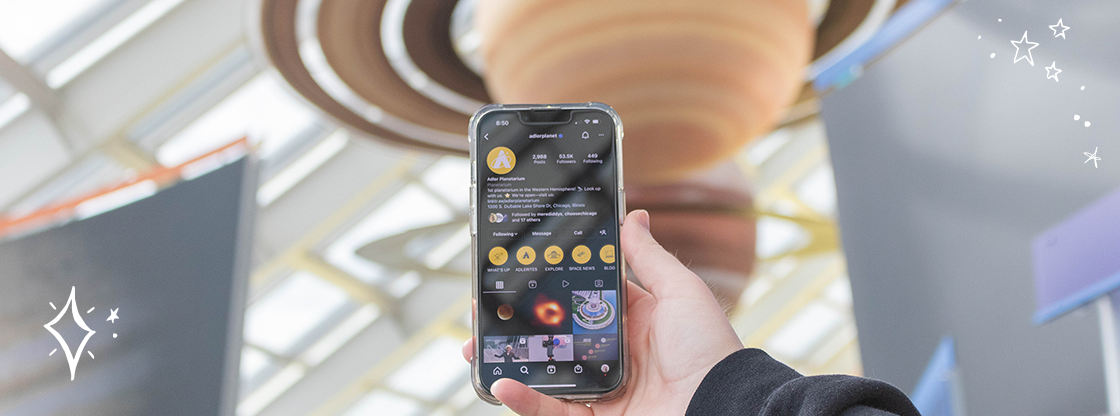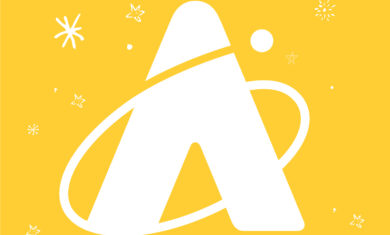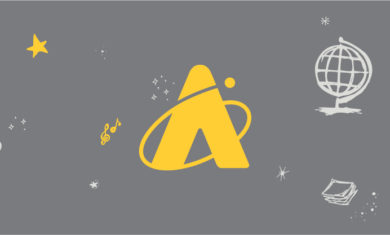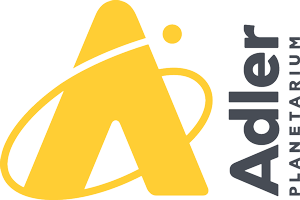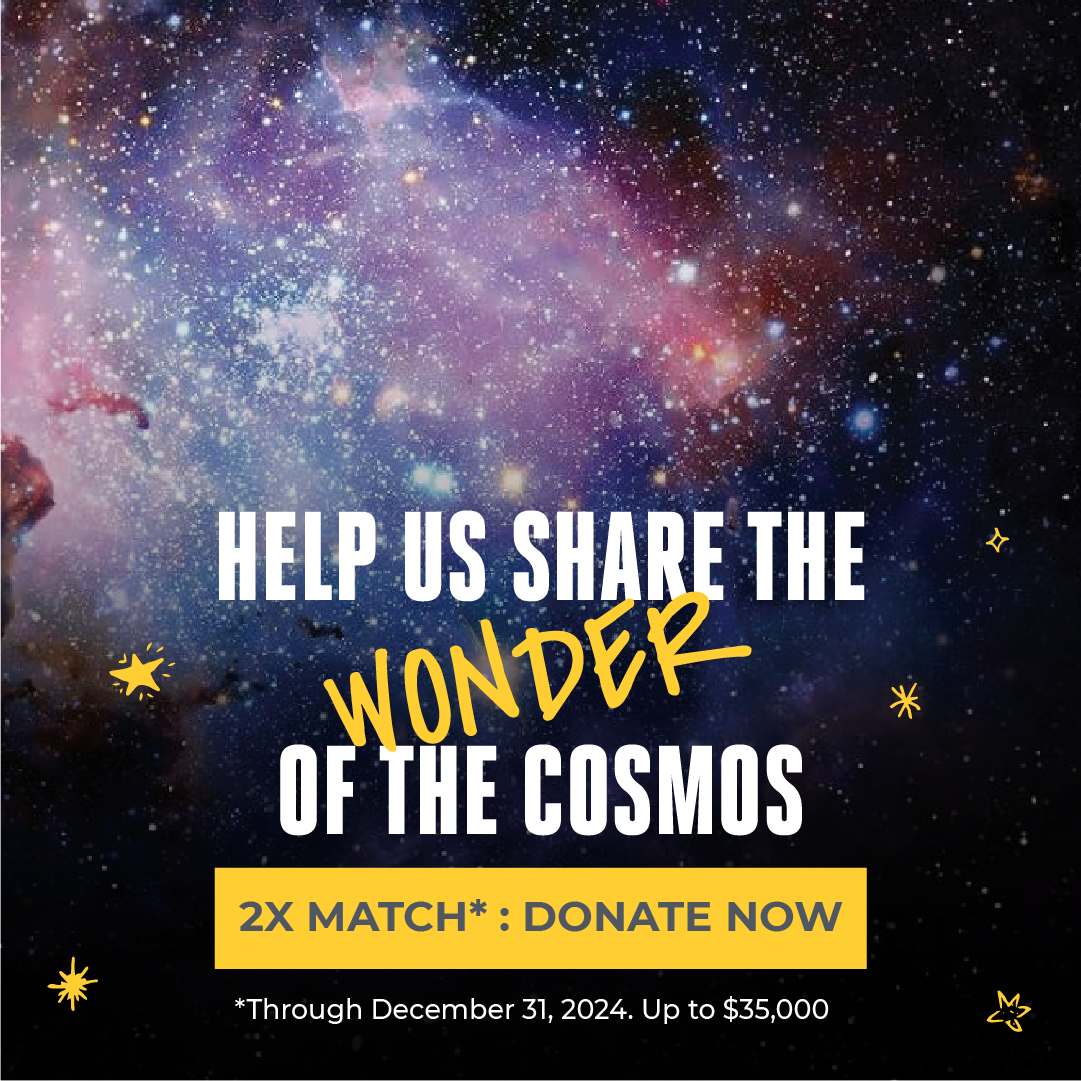Adler Anywhere
Connect with us, with science and astronomy, with our universe—and with other people—exactly where you are!
On a cosmic scale, there’s practically no distance between us. We’re all flying through space on the same little blue planet, and we’re all looking up at the same sky.
The Adler Planetarium is not only a building—it is anywhere people gather to spot a constellation, see themselves in the life story of a scientist, or sing a song about black holes. In classrooms and living rooms all over the world, we remind people that they are not so far away from us, from each other, or from the stars.
Explore The Night Sky
Skywatch Wednesday
Tour the night sky on select Wednesdays with the Adler Planetarium’s Theaters Manager Nick, who uses cutting edge visualizations, NASA images, and astrophotography to show you what you can see in the night sky throughout the year.
Sky Observers Hangout
Discover what it means to observe something in the sky—and how to see it for yourself—with our astronomy educators! Observe upcoming cosmic happenings, enhance your astrophotography skills and see celestial objects through a telescope virtually in this live YouTube series.
Stay In Our Orbit
Space From Home
Sign up to receive our bi-weekly email newsletter titled Space From Home that gives you relevant, light-hearted, thought-provoking, and informative space science content!
Virtual Exhibitions
Our world class collection comes to life through online Google Arts & Culture exhibitions. We have 25 online exhibits that cover a variety of topics like rare books and works on paper, the history of giant telescopes, exoplanets, and people that have made significant contributions to STEAM fields!
The Adler ’Scope Blog
Read stories every month that embody who we are, what we do, and give you an insider look behind-the-scenes of a space museum.
Wow! Signal Space Comedy Show
Laugh along with our team for some much needed space science fun! The Wow! Signal is a lightly educational space science comedy sketch show for adults that covers a variety of topics like dark matter, the Moon, and time travel. You’ll laugh at our clever space jokes, sing along to our catchy original songs, and oops…you’ll learn stuff about space too!
Collaborate From Virtually Anywhere
Adler Zooniverse
Contribute to real scientific research from your couch! Zooniverse allows anybody (yes, anybody) to look at pictures, transcribe documents, analyze data points, and have fun all while helping further scientific research and discovery. Researchers need volunteers (that’s you) to assist in processing large sets of data for projects across a variety of different topics like art, biology, climate, history, language, literature, medicine, nature, physics, social science, and space. Fun fact: Zooniverse is the world’s largest and most popular platform for people-powered research—aka citizen science—and it’s completely free to sign up.
Get Creative
Constellation Coloring Books
Learn fun facts about constellations through illustrations from our world class collection in the The Celestial Zoo, Constellations Of The Zodiac, and Animals In The Sky printable coloring books for all ages.
Do Science at Home
Here’s some stellar activities for the whole family! Use materials you have around your house to try your hand at a variety of experiments like making sundials outside, creating oobleck, and seeing how much salt it takes to make an egg float.
